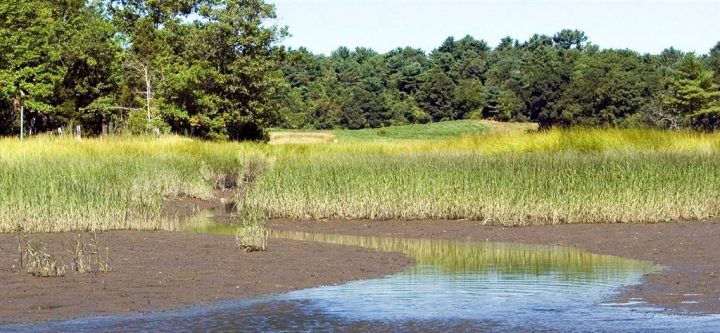
This report has been updated to include comments from the Southern Environmental Law Center.
WASHINGTON – The Biden administration announced Wednesday it will reverse a Trump-era rollback of wetlands and water quality protections.
Supporter Spotlight
The Environmental Protection Agency and Department of the Army said they intend to revise the definition of “waters of the United States,” or WOTUS, or regulated streams and wetlands under the Clean Water Act, “to better protect our nation’s vital water resources that support public health, environmental protection, agricultural activity, and economic growth.”
The EPA said the 2020 Navigable Waters Protection Rule has led to destructive effects on critical water bodies. The revised definition removed protections for an estimated 18% of streams and 51% of wetlands in the U.S., according to the U.S. Geological Survey data.
“After reviewing the Navigable Waters Protection Rule as directed by President Biden, the EPA and Department of the Army have determined that this rule is leading to significant environmental degradation,” said EPA Administrator Michael S. Regan. “We are committed to establishing a durable definition of ‘waters of the United States’ based on Supreme Court precedent and drawing from the lessons learned from the current and previous regulations, as well as input from a wide array of stakeholders, so we can better protect our nation’s waters, foster economic growth, and support thriving communities.”
The agencies said its review of the rule, including stakeholder input, found significantly reduced clean water protections, particularly in arid states including New Mexico and Arizona, where nearly all of more than 1,500 assessed streams were found to be outside of federal regulation. The agencies determined that 333 projects that would have required federal Clean Water Act permitting prior to the Navigable Waters Protection Rule no longer do.
The revised definition of “waters of the United States” has resulted in a 25% reduction in determinations of waters that would otherwise be afforded protection, said Acting Assistant Secretary of the Army for Civil Works Jaime A. Pinkham.
Supporter Spotlight
“Together, the Department of the Army and EPA will develop a rule that is informed by our technical expertise, is straightforward to implement by our agencies and our state and Tribal co-regulators, and is shaped by the lived experience of local communities,” Pinkham said.
Officials said, the Department of Justice is filing a motion requesting remand of the rule. The agencies will then begin a new rulemaking process to restore protections previously in place.
The Southern Environmental Law Center is challenging the Trump rule on behalf of a number of environmental groups including the North Carolina Coastal Federation. That case is pending before the U.S. District Court for the District of South Carolina.
“No administration can allow the interests of industrial polluters to trump the sole objective of the Clean Water Act: to restore and maintain the integrity of our nation’s waters, so that they are safe for fishing, swimming, and as sources of drinking water for our families and communities,” said Kelly Moser, senior attorney and leader of the Southern Environmental Law Center’s Clean Water Defense Initiative. “The Biden administration must act quickly to restore clean water protections because the current rule lets developers, industry, or anyone else pollute, fill, or pave over these waters without federal permit. Every day the rule remains in place means that more streams, wetlands, lakes, and drinking water sources—protected under every other administration—can be destroyed. The administration must make this a priority, and we will hold their feet to the fire.”
The agencies said the new regulatory effort will be guided by protections consistent with the Clean Water Act, the latest science and the effects of climate change, considerations for state and tribal partners and input from landowners, farmers, local governments, community organizations, environmental groups and disadvantaged communities with environmental justice concerns.
The action is part of a review of Trump-era regulatory changes set forth in President Biden’s Executive Order 13990.







